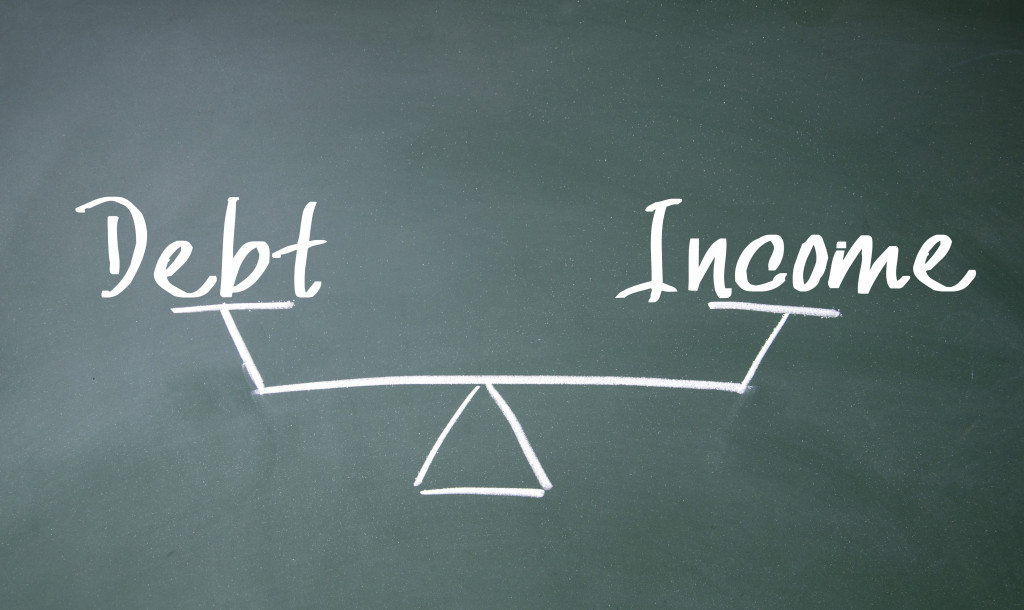- There are different types of bankruptcy filings, each with its own eligibility requirements and benefits.
- It is vital to assess your financial situation thoroughly before filing for bankruptcy.
- Consult an experienced bankruptcy attorney for guidance through the process.
- Consider how bankruptcy will affect your credit and future financial opportunities.
- Understand the required documentation and legal processes involved in filing for bankruptcy.
Filing for bankruptcy is a significant financial decision that can have long-lasting effects on your personal and business life. To make informed decisions, it is essential to approach the process with proper knowledge and understanding. This guide will explore five key essentials before filing for bankruptcy. By familiarizing yourself with these essentials, you can navigate the bankruptcy process more effectively and make the best choices for your financial future.
1. Understand the Different Types of Bankruptcy
Before filing for bankruptcy, it is crucial to understand the various types of bankruptcy filings available. Each type of bankruptcy has its eligibility requirements, benefits, and implications, so it is vital to consult a bankruptcy attorney to determine which option is best suited for your situation.
Here are the different types of bankruptcy:
Chapter 7 Bankruptcy
This type of bankruptcy is called “liquidation bankruptcy” because it allows you to discharge the most unsecured debt by liquidating certain assets. If you are considering this option, seeking a reliable Chapter 7 bankruptcy attorney who can help guide you through the process and ensure that all paperwork is filed correctly is important. An attorney will also assist you in determining which assets are exempt from liquidation and help you protect them.
Chapter 13 Bankruptcy
Chapter 13 is a reorganization bankruptcy in which you develop a repayment plan over 3-5 years to pay off creditors. This type of bankruptcy is often used by those with a steady income who cannot pass the means test required for Chapter 7 bankruptcy. To qualify for Chapter 13, you must have sufficient disposable income to afford repayment to your creditors over a three-to-five-year period. Once the repayment plan is approved, it becomes a legally binding agreement, and all creditors must abide by its terms.
Chapter 11 Bankruptcy
Businesses commonly use Chapter 11 bankruptcy, but individuals may file this type if their debts exceed the limits established for Chapters 7 or 13 bankruptcy. Generally speaking, individuals who pursue Chapter 11 are usually business owners or high-net-worth individuals with significant debt obligations that would be difficult to manage using the other two types of bankruptcy. When filing Chapter 11, a debtor must propose a repayment plan to creditors for the case to be approved by the court.
Chapter 12 Bankruptcy
Chapter 12 bankruptcy is another type of reorganization bankruptcy designed specifically for family farmers and fishermen with regular income. To qualify for this type of bankruptcy, you must have an annual income from farming or fishing operations that exceeds 50% of your total yearly income. The repayment plan created under Chapter 12 allows debtors to keep their assets while repaying debts over 3-5 years as long as payments are made on time and according to the terms outlined in the repayment plan. Upon completion of all payments, the remaining debt is discharged
2. Evaluate Your Financial Situation

Before filing for bankruptcy, it is crucial to assess your financial situation thoroughly. Take stock of your debts, assets, income, and expenses. Calculate your total debt and evaluate your ability to repay it. Determine which debts are dischargeable and which ones are not. Consider the value of your assets and whether they are exempt or non-exempt in bankruptcy. Assess your income and compare it to your expenses to understand your financial stability. This evaluation will help you determine if bankruptcy is the right solution for your financial difficulties and what type of bankruptcy filing is most suitable.
3. Consult with a Bankruptcy Attorney
Navigating the bankruptcy process can be complex and overwhelming. It is highly recommended to consult with a qualified bankruptcy attorney who specializes in bankruptcy law. An experienced attorney can guide you through the legal requirements, explain your options, help you complete the necessary paperwork, and represent your interests throughout the process. They can offer useful guidance on determining the suitable bankruptcy filing for your circumstances and aid you in devising a plan to maximize the advantages of bankruptcy while safeguarding your assets.
4. Consider the Impact on Credit and Future Financial Opportunities
Filing for bankruptcy significantly affects your credit score and future financial opportunities. Bankruptcy will remain on your credit report for a certain period, typically seven to ten years, depending on the type of bankruptcy filed. It can make it challenging to obtain credit in the future and may result in higher interest rates or limited borrowing options. However, bankruptcy can also provide an opportunity to rebuild your credit over time by demonstrating responsible financial behavior. Understanding the long-term consequences of bankruptcy is crucial, and developing a plan to rebuild your creditworthiness after the process is completed.
5. Consider the Required Documentation and Legal Processes
Filing for bankruptcy requires thorough documentation and adherence to legal processes. You must gather and provide detailed information about your debts, assets, income, expenses, tax returns, and other financial records. Completing the required paperwork accurately and thoroughly is crucial to ensure the success of your bankruptcy filing. Additionally, you may be required to attend credit counseling and debtor education courses as part of the bankruptcy process. Understanding the documentation requirements and legal processes will help you navigate bankruptcy smoothly and minimize potential delays or complications.
Final Thoughts
Filing for bankruptcy is a significant decision that requires careful consideration and understanding of the essentials involved. By familiarizing yourself with the different types of bankruptcy filings, evaluating your financial situation, consulting with a bankruptcy attorney, considering the impact on credit and future financial opportunities, and understanding the required documentation and legal processes, you can approach bankruptcy with confidence and make informed decisions about your financial future. Remember, bankruptcy is a legal process designed to give individuals and businesses a fresh start. With the right knowledge and guidance, you can navigate this process effectively and lay the foundation for a stronger financial future.



